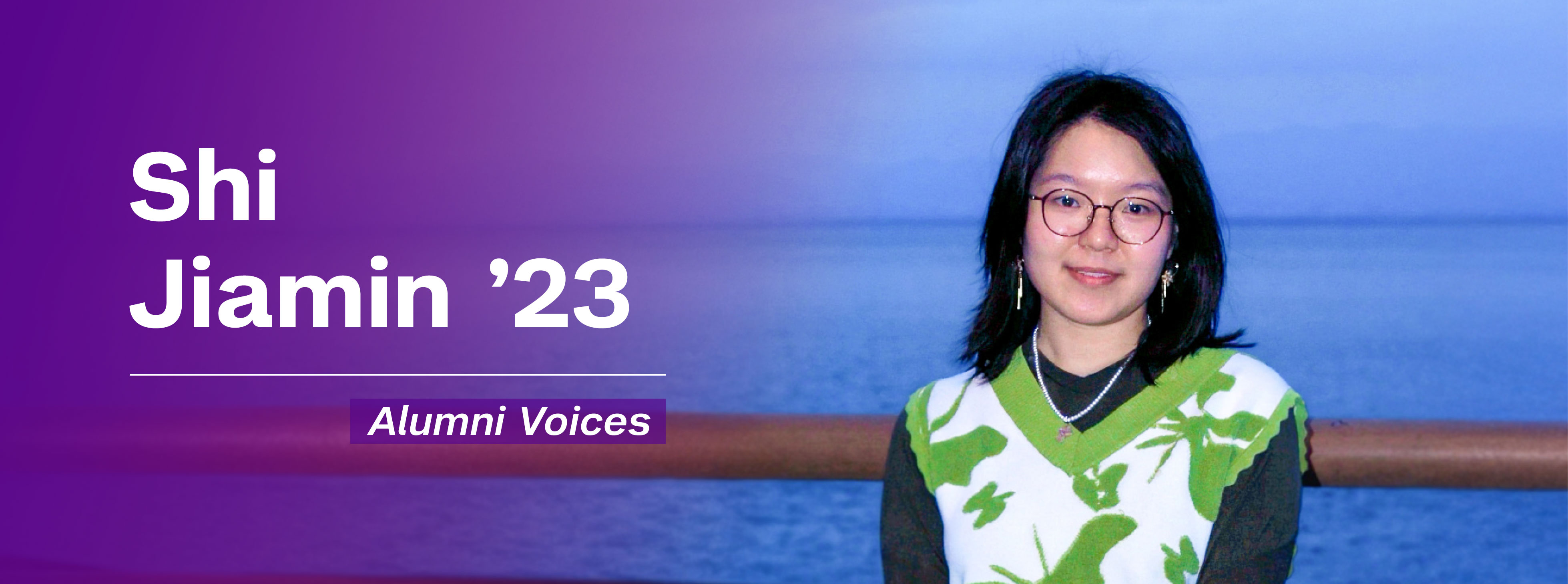
Current Role: Designer at Slow Brand Studio
Hometown: Shanghai, China
Major: Interactive Media Arts
Growing up between two vastly different cities—Harare and Shanghai—Shi Jiamin ’23 learned to embrace complexity and value diversity. Majoring in Interactive Media Arts at NYU Shanghai, she thrived in a collaborative, supportive community where self-expression mattered more than competition. Choosing a start-up over graduate school, she followed her conviction to learn by doing.
Why did you choose NYU Shanghai?
I spent my childhood in Harare, Zimbabwe. When I came back to Shanghai, though I adapted myself to the exam-oriented education system, I also enjoyed and benefited from English debate in high school, which taught me critical thinking, and the ability to understand complicated, sometimes contradictory ideas. I knew I would flourish in an international, diverse, and inclusive educational environment.
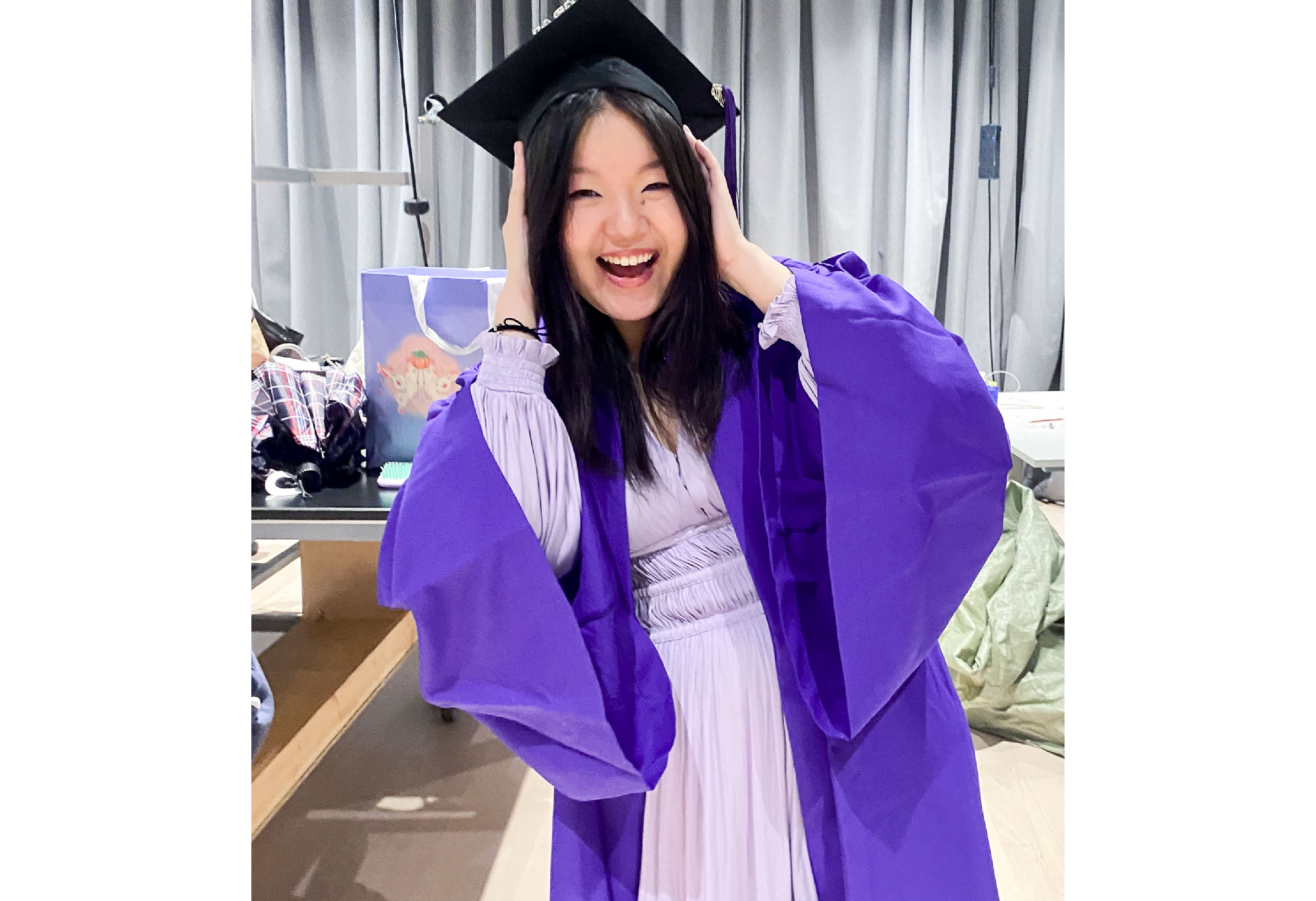
What was your experience like at IMA?
My experience at IMA was full of love, support, and a true sense of belonging. The IMA Studio was at the heart of it all—it brought everyone together in one space. We worked on projects side by side, ordered takeout, watched reality shows while eating, and even collected over 60 little yellow duck toys from lemon tea deliveries. Before graduation, we all signed our names on the biggest “captain duck,” which still feels like a symbol of our shared memories.
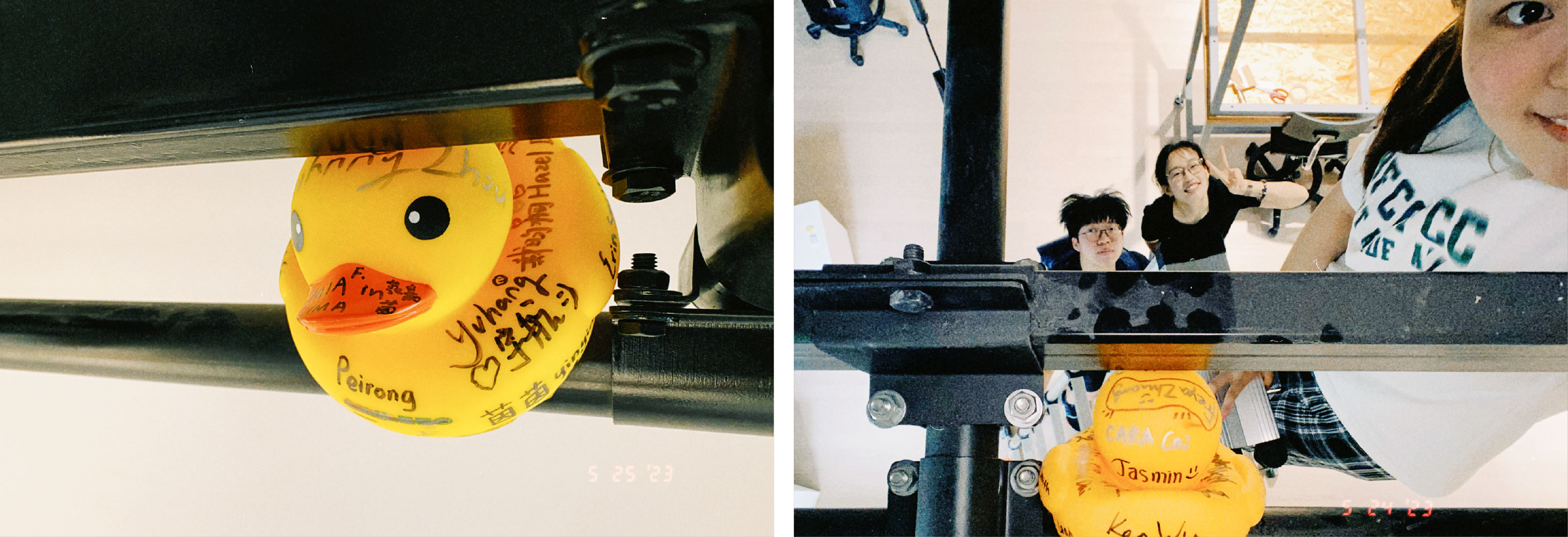
What impressed me most was how much the professors invested in us. If they were in the studio, it meant you could always ask questions or discuss ideas. Sometimes we were coding until late at night, and a professor would still be there at 10 p.m. with a bluetooth keyboard, walking around to help us debug. Everyone truly wanted your project to bring out the best of your ideas.
At IMA, I learned that expressions don't have to follow a single standard. Instead of competing for rankings, we valued whether our work genuinely reflected what we wanted to express. It was a warm, collaborative community where you could always reach out, start a conversation, and be embraced with kindness.
Why did you decide to join a start-up company?
In fact, I also prepared to apply for graduate schools in my senior year, same as most of my classmates in IMA. However, I gave up halfway, because I couldn’t convince myself to write an authentic statement of purpose. I’ve always had this rule: I want to be selected as who I truly am, not as a polished version of myself that simply fits expectations.
As I worked on applications, I began questioning what graduate school really meant for me. I love creative work, but I also realized that I didn’t necessarily need another degree to achieve self-expression. I wanted to see how ideas live in the real world, how they interact with people, and whether they can stand up to commercial application. The business world felt too exciting to ignore.
In Spring 2023, I connected with an NYU alum who runs Slow Brand Studio, doing brand consulting and sustainable products. I jumped in almost immediately. It was small, and that meant I got to try everything: consulting, on-site interviews, social media seeding, even factory visits. It felt like “zero-cost entrepreneurship,” where I could experiment, fail, and learn without limits.
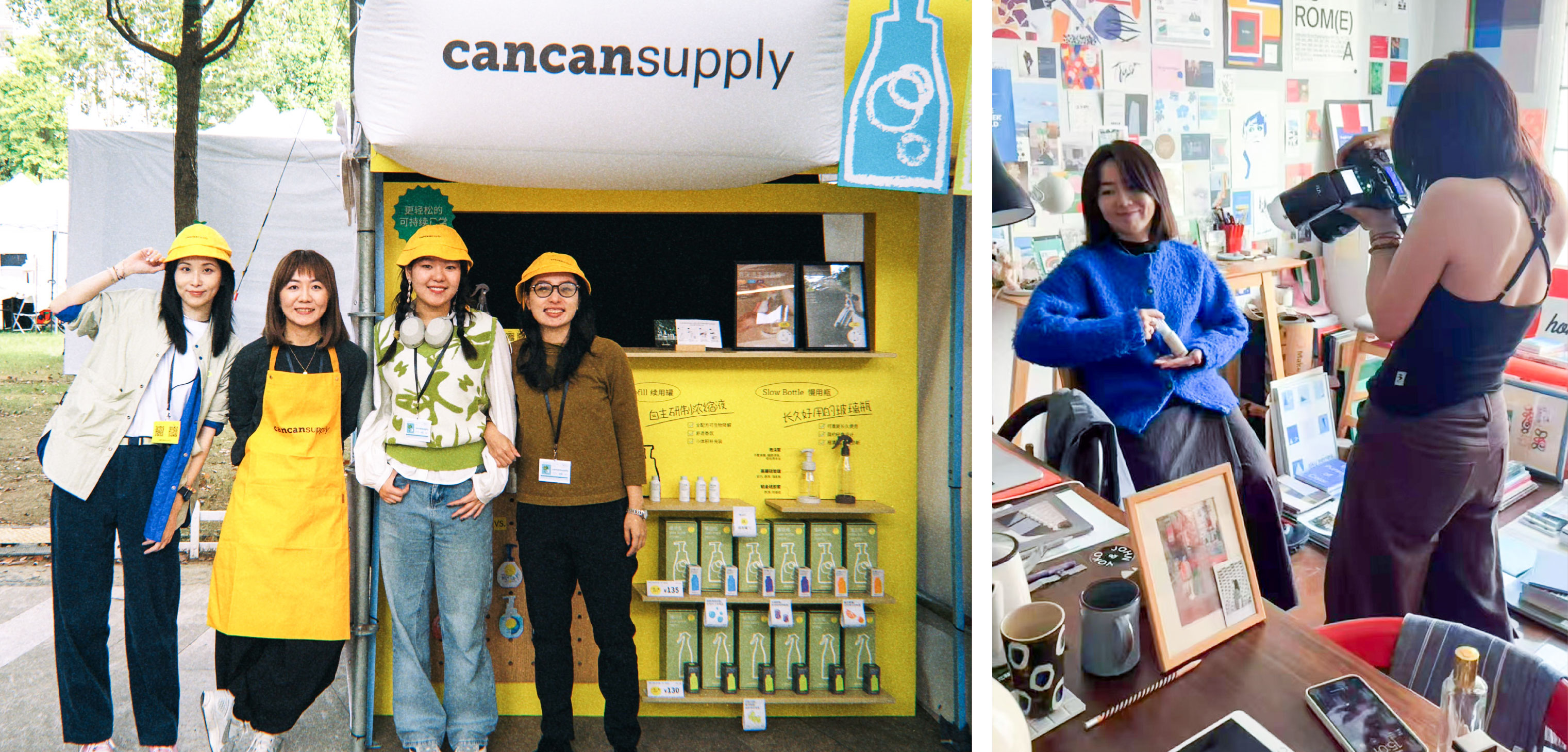
To me, a good job is not about big name or salary, but whether it helps me grow. The start-up gave me exactly that—a place to learn from a leader I admire, to try various things, and to build confidence that I can shape my own path.
How did your childhood in Harare, Zimbabwe shape your experiences and worldview?
From age 3 to 7, I studied in an international school where children of all races and cultures studied, played, and even sang the Zimbabwean national anthem together. Diversity was so natural to me that I never thought of it as something unusual.
Our days were filled with both learning and playing. Teachers never graded us with numbers; instead, they gave encouraging words like good, excellent, or superb. It was a joyful, non-competitive way of growing up.
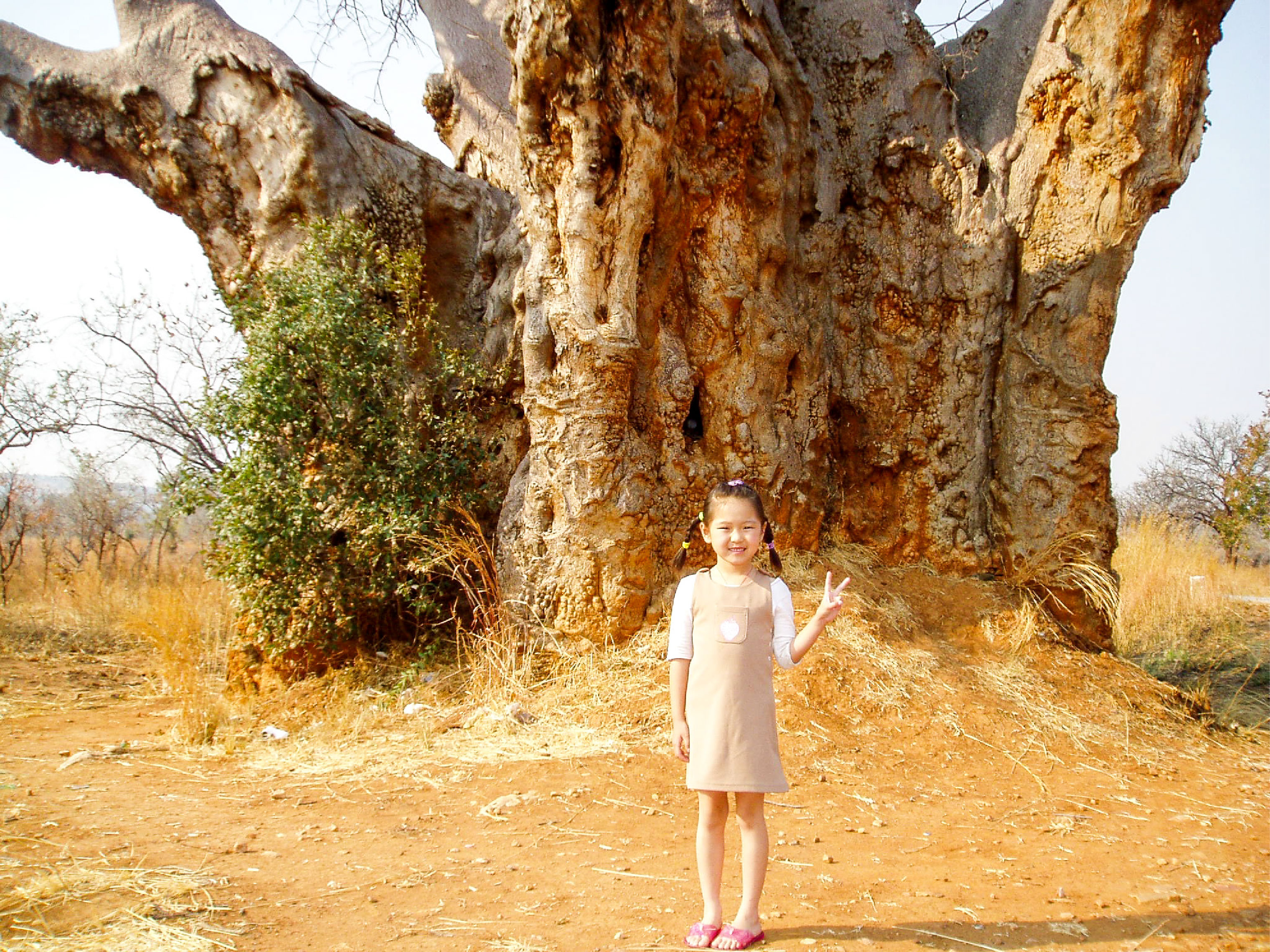
When I returned to Shanghai at age seven, I had to adapt to a very different educational system. Studying in Shanghai, I’m a straight-A student; returning to Zimbabwe during vacations, no one cared about my scores. Living between these worlds made me realize that there isn’t just one way to measure worth. Even if you don’t play by certain rules, life still goes on.
Zimbabwe remains my spiritual anchor. When I feel uncertain, I often recall lying on the warm grass under the Harare sky, feeling both the earth and the universe embracing me. That early sense of being protected still shapes my optimism and trust in people today.
What’s your advice for current NYU Shanghai students?
Don’t reduce people to a single label or stereotype—doing so only narrows your own world. One thing NYU Shanghai taught me is to embrace complexity.
I also believe our state of mind is like a magnet: when you are at ease, grounded, and in good spirits, you naturally attract good people and opportunities. Happiness is not something you must strive for—be it a certain grade or a certain amount of money—but something you can perceive everywhere when your mind is open.

